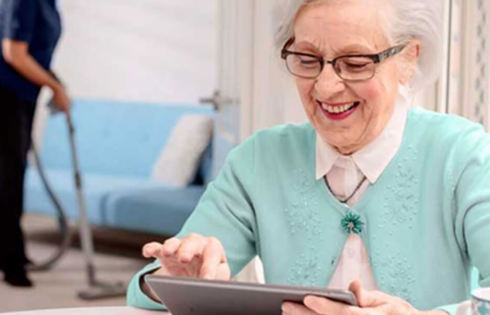More choice and control – self-managed Home Care Packages proving a compelling alternative for many Australians
07/12/2023

Australians self-managing their Home Care Packages (HCPs) feel like they receive greater choice, more control, lower costs and more consistency of care than they would from traditional home care packages managed by providers.
This is the result of a study, undertaken by Dr Sarah Russell from Research Matters, and commissioned by Mable, an online platform that connects people with home care services.
The study looked at the lived experience of 30 Australians self-managing with Mable.
At a time where deficiencies in Australia’s current aged care system are under the microscope, Dr Russell’s research aims to bring a human voice to the conversation.
Greater choice
The research report notes it is clear that ‘choice’ is one of the key advantages of self-managing a Home Care Package and using platforms like Mable can provide this.
Mable gives users the opportunity to choose who works in their home, when they work, what they do and how much they are paid.
And many respondents felt this sense of empowerment alone improved their quality of life.
More control
Increased ‘control’ by Home Care Package recipients was another key theme.
Many respondents cited instances where traditional providers had made ageist assumptions about their care needs, providing something unsuitable or irrelevant.
But a self-managed model like Mable lets participants tailor their support.
Lower costs
Value for money was also a big factor.
Participants naturally wanted to be getting as much as they could out of their Home Care Package – a key advantage of Mable’s self-managed platform.
Lower package management and case management fees meant participants had more money available in their packages to devote to care.
This is a result of the lower administration fees typically seen when self-managing. For instance, Participant 4 in the report noted:
“We get more than twice the hours [with self-management]” compared to provider-managed.”
Consistency of care
Another compelling concept was consistency of care.
Many respondents self-managing their Home Care Packages with the Mable platform enjoyed the ability to choose their own support workers, and to continue engaging the same workers over the long term.
“Participants described their initial provider sending a large number of support workers to their homes, often at irregular times,” the report notes.
“In contrast, Mable enabled both choice and continuity to support workers.”
Self-managed home care an option all Australians should be aware of
“This research demonstrates that for many people, self-management of their home care package is a very important expression of those rights.”
Dr Russell’s work indicates self-managed home care packages can provide choice, control, lower costs and a consistency of care.
And this is something we all want for ourselves and our Mums and Dads.
To learn more about Self Managing a Home Care Package, and to read the research report, click here.














